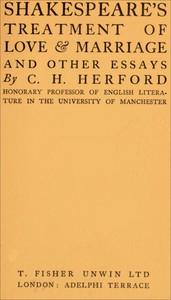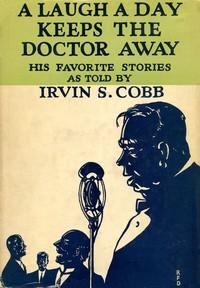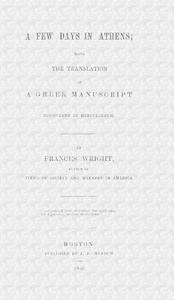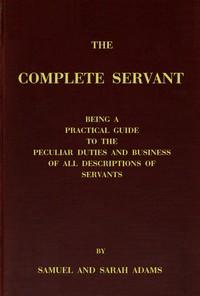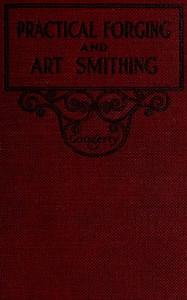|
|
Read this ebook for free! No credit card needed, absolutely nothing to pay.Words: 50709 in 10 pages
This is an ebook sharing website. You can read the uploaded ebooks for free here. No credit cards needed, nothing to pay. If you want to own a digital copy of the ebook, or want to read offline with your favorite ebook-reader, then you can choose to buy and download the ebook.

: Shakespeare's treatment of love & marriage and other essays by Herford C H Charles Harold - Keats John 1795-1821; Poetry History and criticism; Shakespeare William 1564-1616 Political and social views; Lucretius Carus Titus; Love in literature; D'Annunzio@FreeBooksThu 08 Jun, 2023 PREFACE 7 I SHAKESPEARE'S TREATMENT OF LOVE AND MARRIAGE I SHAKESPEARE'S TREATMENT OF LOVE AND MARRIAGE THE Shakesperean world is impressed, as a whole, with an unmistakable joy in healthy living. This tells habitually as a pervading spirit, a contagious temper, not as a creed put forward, or an example set up. It is as clear in the presentment of Falstaff or Iago, as of Horatio or Imogen. And nowhere is it clearer than in his handling of the relations between men and women. For here Shakespeare's preferences and repugnances are unusually transparent; what pleased him in the ways of lovers and wedded folks he drew again and again, and what repelled him he rarely and only for special reasons drew at all. Criminal love, of any kind, holds a quite subordinate place in his art; and, on the other hand, if ideal figures are to be found there, it is among his devoted, passionate, but arch and joyous women. The present study will follow the plan thus indicated. The first section defines the 'norm.' The second describes the kinds of appeal and effect, in Comedy and Tragedy, to which the drama of 'normal' love lent itself. The third traces the gradual approach to the norm in the early Comedies. The fourth and fifth sections, finally, discuss the treatment, in Comedy and Tragedy, of Love-types other than the norm. The Shakesperean norm of love, thus understood, may be described somewhat as follows. Love is a passion, kindling heart, brain, and senses alike in natural and happy proportions; ardent but not sensual, tender but not sentimental, pure but not ascetic, moral but not puritanic, joyous but not frivolous, mirthful and witty but not cynical. His lovers look forward to marriage as a matter of course, and they neither anticipate its rights nor turn their affections elsewhere. They commonly love at first sight and once for all. Love-relations which do not contemplate marriage occur rarely and in subordination to other dramatic purposes. Tragedy like that of Gretchen does not attract him. Romeo's amour with Rosalind is a mere foil to his greater passion, Cassio's with Bianca merely a mesh in the network of Iago's intrigue; Claudio's with Juliet is the indispensable condition of the plot. The course of love rarely runs smooth; but rival suitors proposed by parents are quietly resisted or merrily abused, never, even by the gentlest, accepted. Crude young girls like Hermia, delicate-minded women like Desdemona and Imogen, the rapturous Juliet and the homely Anne Page, the discreet Silvia and the na?ve Miranda, are all at one on this point. And they all carry the day. The dramatically powerful situations which arise from forced marriage--as when Ford's Penthea or Corneille's Chim?ne is torn by the conflict between love and honour--lie, like this conflict in general, outside Shakespeare's chosen field. And with this security of possession his loving women combine a capacity for mirth and jest not usual in the dramatic representation of passion. Rosalind is more intimately Shakesperean than Juliet. Love's not love When it is mingled with regards that stand Aloof from the entire point. Or of Imogen, blind to all but the path of light and air that divides her from Milford Haven: I see before me, man; nor here, nor here, Nor what ensues, but have a fog in them, That I cannot look through. For know, my love, as easy mayst thou fall A drop of water in the breaking gulf And take unmingled thence that drop again Without addition or diminishing, As take from me thyself and not me too; an utterance which in its simple pathos anticipates the agonized cry of Othello--the most thrilling expression in Shakespeare of the meaning of wedded unity: But there, where I have garnered up my heart, Where either I must live, or bear no life, The fountain from the which my current runs, Or else dries up: to be discarded thence! Free books android app tbrJar TBR JAR Read Free books online gutenberg More posts by @FreeBooks
: A laugh a day keeps the doctor away by Cobb Irvin S Irvin Shrewsbury - American wit and humor; Anecdotes@FreeBooksThu 08 Jun, 2023

: A few days in Athens being the translation of a Greek manuscript discovered in Herculaneum by Wright Frances - Biographical fiction; Philosophers Fiction; Athens (Greece) Fiction; Epicurus 341 B.C.-270 B.C. Fiction; Greece History To 146 B.C. Fiction@FreeBooksThu 08 Jun, 2023
|
Terms of Use Stock Market News! © gutenberg.org.in2025 All Rights reserved.

